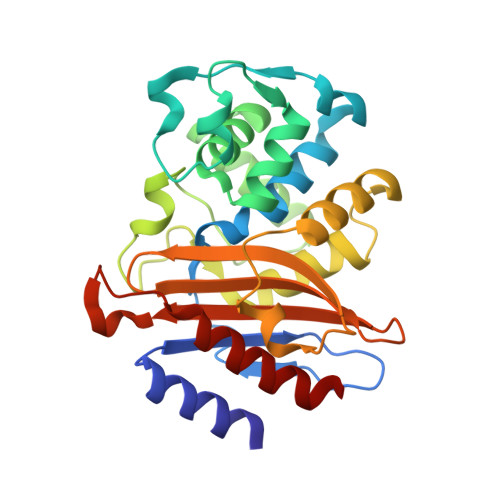Meropenem-clavulanate is effective against extensively drug-resistant Mycobacterium tuberculosis
Hugonnet, J.E., Tremblay, L.W., Boshoff, H.I., Barry, C.E., Blanchard, J.S.(2009) Science 323: 1215-1218
- PubMed: 19251630
- DOI: https://doi.org/10.1126/science.1167498
- Primary Citation of Related Structures:
3DWZ - PubMed Abstract:
beta-lactam antibiotics are ineffective against Mycobacterium tuberculosis, being rapidly hydrolyzed by the chromosomally encoded blaC gene product. The carbapenem class of beta-lactams are very poor substrates for BlaC, allowing us to determine the three-dimensional structure of the covalent BlaC-meropenem covalent complex at 1.8 angstrom resolution. When meropenem was combined with the beta-lactamase inhibitor clavulanate, potent activity against laboratory strains of M. tuberculosis was observed [minimum inhibitory concentration (MIC(meropenem)) less than 1 microgram per milliliter], and sterilization of aerobically grown cultures was observed within 14 days. In addition, this combination exhibited inhibitory activity against anaerobically grown cultures that mimic the "persistent" state and inhibited the growth of 13 extensively drug-resistant strains of M. tuberculosis at the same levels seen for drug-susceptible strains. Meropenem and clavulanate are Food and Drug Administration-approved drugs and could potentially be used to treat patients with currently untreatable disease.
- Department of Biochemistry, Albert Einstein College of Medicine, 1300 Morris Park Avenue, Bronx, NY 10461, USA.
Organizational Affiliation:


















